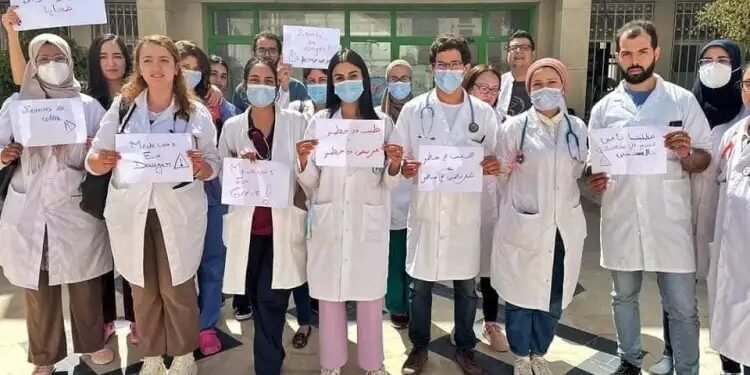Tension rises in the public health sector. From July 1, 2025, some 7,000 resident and internal doctors will start a national strike, paralyzing services in public hospitals. This new mobilization follows a series of protests started since April, faced with professional demands that have remained unanswered.
According to Baha Eddine Rabei, vice-president of the Tunisian organization of young doctors, this strike is part of a dynamic of growing protest, fueled by the inaction of the Ministry of Health. At the heart of claims: a revision of the remuneration of night guards, the exemption from compulsory civil service, as well as a revaluation of the monthly scholarship, deemed derisory with regard to the workload.
Anger has accentuated after the massive boycott (over 95%) by nearly 6,200 young doctors of the choice of internship centers offered five times by the authorities. A strong gesture that the organization interprets as an answer to the lack of serious dialogue with the ministry.
“These repeated summons are perceived as an attempt to divide the movement,” explains Rabei, recalling that the last meeting held on June 12 with the representatives of the State did not lead to any concrete agreement.
In a publication dated June 26, the president of the organization, Wajih Dhokkar, denounced on Facebook the material precariousness of young practitioners. He notably mentioned an hourly remuneration of 1 dinar for the guards, a monthly salary capped at 1,500 dinars, and housing costs of up to 700 dinars per month, particularly in coastal cities where young doctors are regularly assigned.
For several months, young doctors have multiplied the actions: strike on April 21, national march on May 2, then five days of strike in June. The strike announced for July is part of this escalation and could have a significant impact on the operation of public hospitals if no rapid solution is found.








